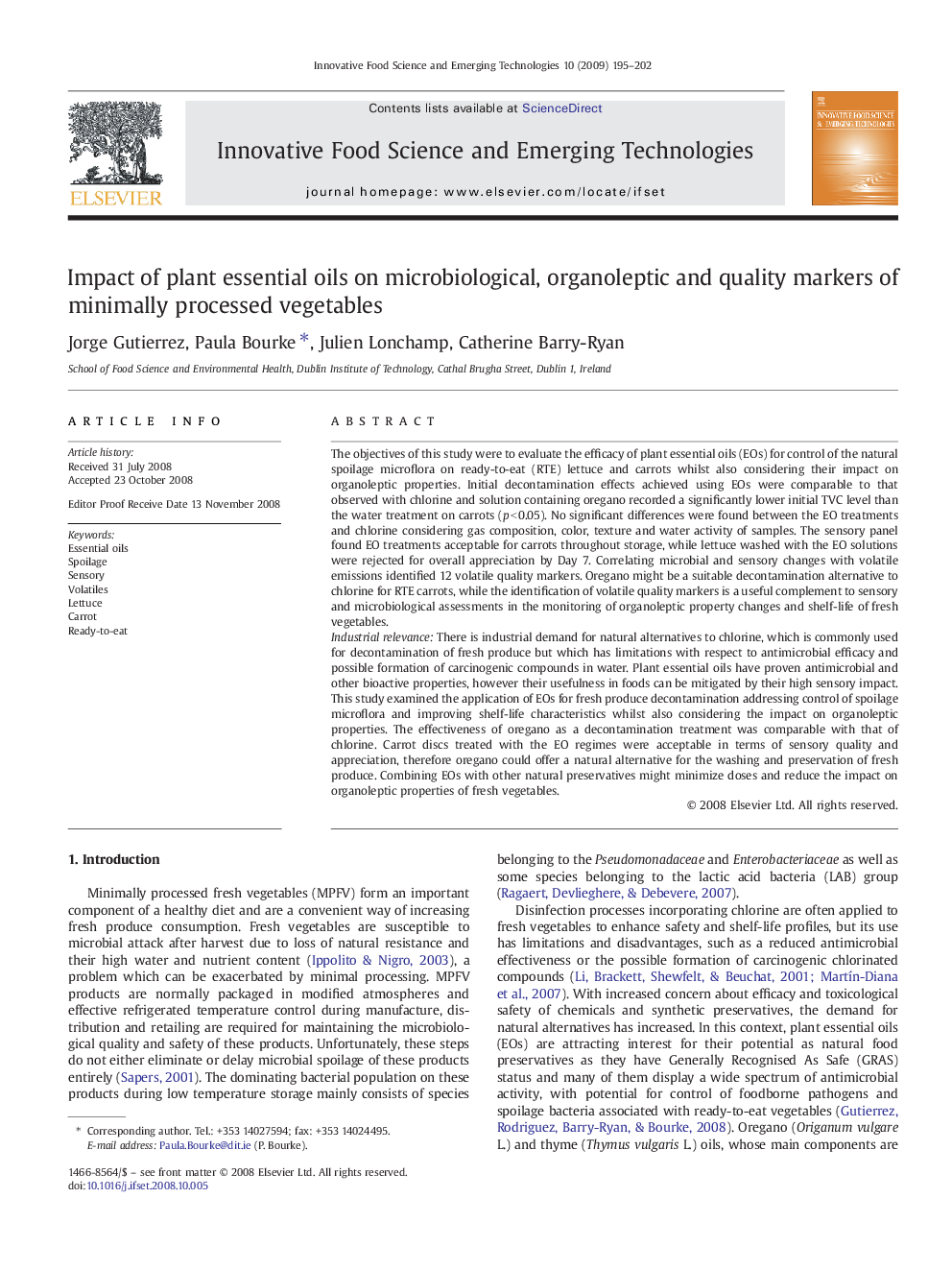| کد مقاله | کد نشریه | سال انتشار | مقاله انگلیسی | نسخه تمام متن |
|---|---|---|---|---|
| 2087216 | 1080632 | 2009 | 8 صفحه PDF | دانلود رایگان |

The objectives of this study were to evaluate the efficacy of plant essential oils (EOs) for control of the natural spoilage microflora on ready-to-eat (RTE) lettuce and carrots whilst also considering their impact on organoleptic properties. Initial decontamination effects achieved using EOs were comparable to that observed with chlorine and solution containing oregano recorded a significantly lower initial TVC level than the water treatment on carrots (p < 0.05). No significant differences were found between the EO treatments and chlorine considering gas composition, color, texture and water activity of samples. The sensory panel found EO treatments acceptable for carrots throughout storage, while lettuce washed with the EO solutions were rejected for overall appreciation by Day 7. Correlating microbial and sensory changes with volatile emissions identified 12 volatile quality markers. Oregano might be a suitable decontamination alternative to chlorine for RTE carrots, while the identification of volatile quality markers is a useful complement to sensory and microbiological assessments in the monitoring of organoleptic property changes and shelf-life of fresh vegetables.Industrial relevanceThere is industrial demand for natural alternatives to chlorine, which is commonly used for decontamination of fresh produce but which has limitations with respect to antimicrobial efficacy and possible formation of carcinogenic compounds in water. Plant essential oils have proven antimicrobial and other bioactive properties, however their usefulness in foods can be mitigated by their high sensory impact. This study examined the application of EOs for fresh produce decontamination addressing control of spoilage microflora and improving shelf-life characteristics whilst also considering the impact on organoleptic properties. The effectiveness of oregano as a decontamination treatment was comparable with that of chlorine. Carrot discs treated with the EO regimes were acceptable in terms of sensory quality and appreciation, therefore oregano could offer a natural alternative for the washing and preservation of fresh produce. Combining EOs with other natural preservatives might minimize doses and reduce the impact on organoleptic properties of fresh vegetables.
Journal: Innovative Food Science & Emerging Technologies - Volume 10, Issue 2, April 2009, Pages 195–202